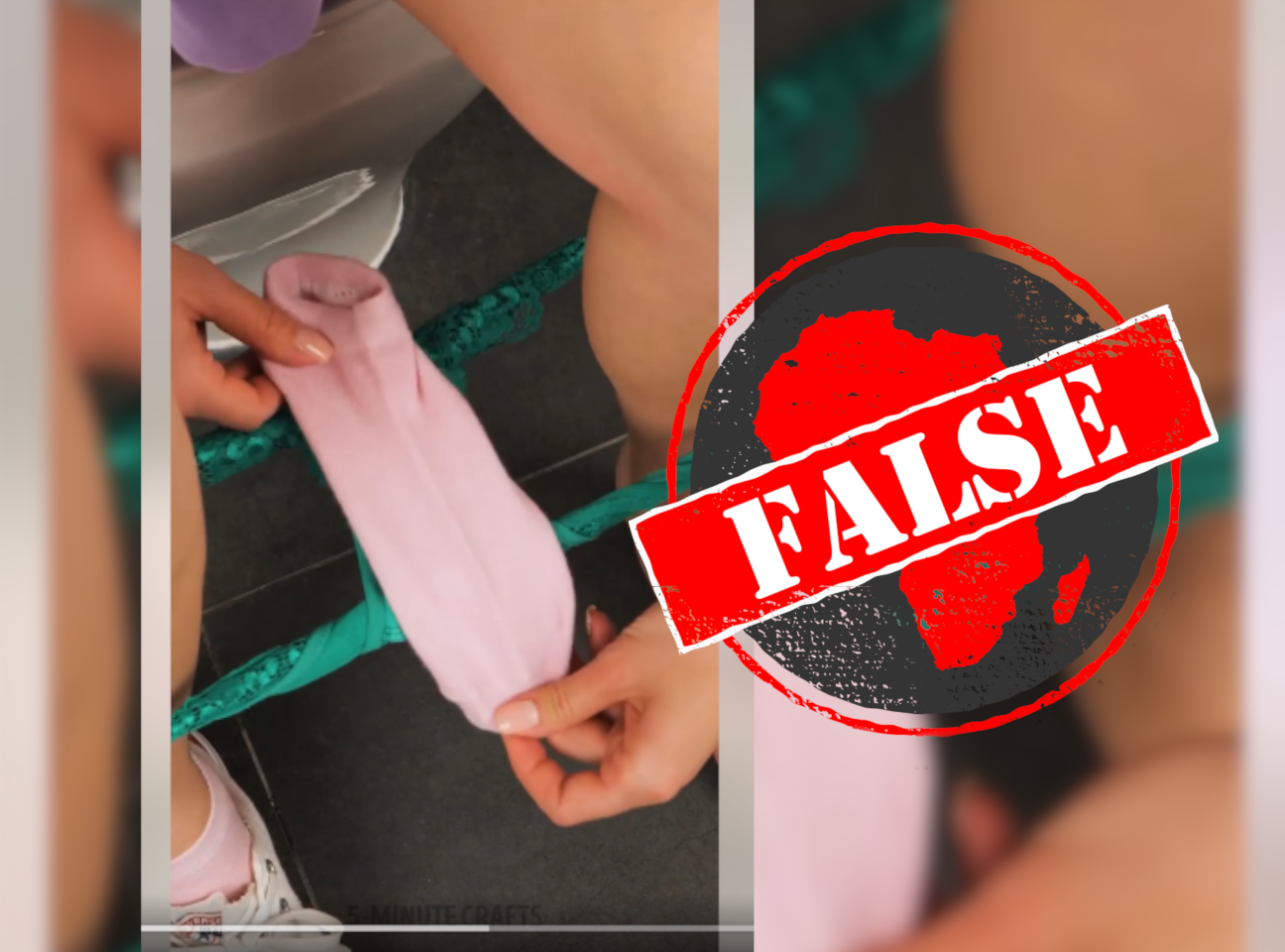A video by a popular “life hack” YouTube channel features several “period tips for girls”. The tips include items that can be used during menstruation, when regular sanitary products are unavailable.
The video was first posted to the 5-Minute Crafts DIY channel on 14 May 2022. A day later, a clip from the video was posted to the channel’s Facebook group, 5-Minute Crafts GIRLY.
The video shows someone sitting down on a toilet to discover that they’ve started menstruating. They then remove one of their socks and, using double-sided tape, stick the sock onto their underwear in place of a sanitary pad.
Several users seemed outraged by the suggestion. Some comments on the Facebook post read “Seriously! Dirty socks during periods?” and “Dirty sock??? Its a big NO NO”.
The use of socks as sanitary pads has been documented in South Africa and in other countries as an example of period poverty – a lack of access to menstrual products.
But is this a viable alternative to sanitary products in an emergency?

Poor menstrual hygiene, like using unwashed clothing, linked to health complications
Various studies suggest that poor hygiene is associated with health risk. A study in Tanzania found a link between using cloth products during menstruation and bacterial vaginosis, an overgrowth of harmful bacteria that sometimes results in other health complications.
Research from India and Egypt has identified a link between poor menstrual hygiene, like using cloth materials, and reproductive tract infections. In Pakistan, using unwashed clothing or material as menstrual products was linked with secondary infertility, which is when someone struggles to have a baby after previously conceiving.
It should be noted that these studies are correlational, meaning that it is not clear whether poor menstrual hygiene caused these complications. But experts in gynaecology have also raised concerns about the health implications of poor menstrual hygiene.
Rather use a clean material like toilet paper to absorb blood
Dr Pratima Thamke, a consultant gynaecologist in Mumbai, India, has decades of experience working in hospitals in India. She said that maintaining good menstrual hygiene was crucial in preventing reproductive health complications like fungal infections.
Africa Check spoke with Candice Chirwa, a South African menstruation equality activist. She cautioned that using a sock as a menstrual product might lead to an increased risk of reproductive tract infections.
Access to menstrual hygiene products remains a challenge in South Africa, with many unable to access products such as pads, tampons and menstrual cups, designed to safely absorb menstrual blood.
Chirwa told Africa Check that where none of these products are available, a clean absorbent material like toilet paper would be a “healthier and safer” temporary alternative to using an unwashed sock.
Republish our content for free
For publishers: what to do if your post is rated false
A fact-checker has rated your Facebook or Instagram post as “false”, “altered”, “partly false” or “missing context”. This could have serious consequences. What do you do?
Click on our guide for the steps you should follow.
Publishers guideAfrica Check teams up with Facebook
Africa Check is a partner in Meta's third-party fact-checking programme to help stop the spread of false information on social media.
The content we rate as “false” will be downgraded on Facebook and Instagram. This means fewer people will see it.
You can also help identify false information on Facebook. This guide explains how.


Add new comment